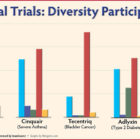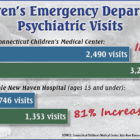Doctors, Clinician Team Up For C-HIT Forum On Stress, Mindfulness
|
There’s no denying it: most of us are stressed. Stress levels in the country are at their highest in at least a decade, research shows, and a recent American Psychological Association (APA) study found two-thirds of respondents feel stressed about the future. To learn about the leading sources of stress, how stress affects your health and how to reduce stress, the Connecticut Health I-Team will host a community forum, “Getting Ahead of Stress: A Primer on Medicine, Mental Health and Mindfulness,’’ from 5 to 7:30 p.m. on Oct. 5, at the Frank H. Netter MD School of Medicine at Quinnipiac University, 370 Bassett Road in North Haven. The free event is open to the public and you can register here.


